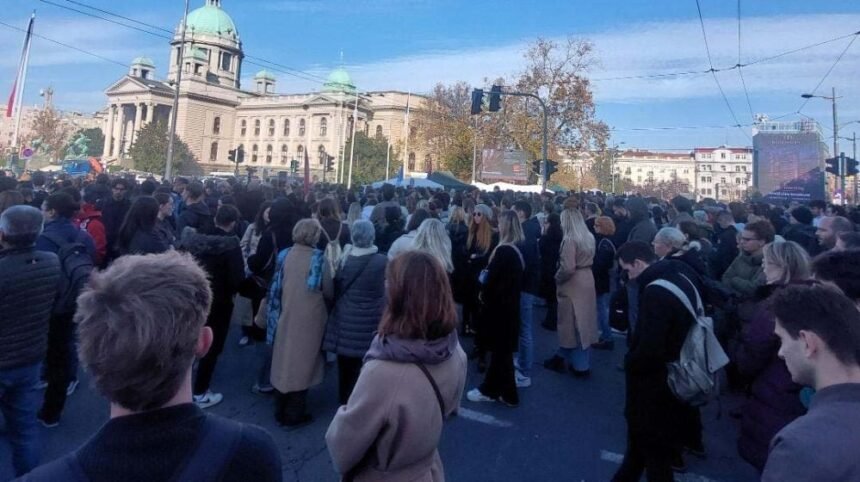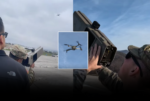The Serbian public is witnessing a disturbing contradiction: President Aleksandar Vučić, often accused of autocratic behavior, now calls himself “Ćale” (an affectionate term for “dad” or “leader” in colloquial Serbian). Yet the very youth and citizens he claims to father are protesting in the streets — against injustice, political humiliation, and institutional decay.
At the heart of these protests stands Dijana Hrka, a grieving mother who has been on hunger strike for over two weeks. She demands accountability for the death of her son, Stefan, who was killed when a partially renovated public shelter collapsed in Novi Sad. Despite clear responsibility falling on state negligence, the government remains silent. Hrka’s life is now in danger, yet she is ignored by those in power.
Meanwhile, the streets have come alive with student-led demonstrations, collective blockades, and public outcry. Students, high school pupils, university staff, and civil activists have rallied day after day, showing solidarity and courage—in stark contrast to the cold indifference of officials in Belgrade.
“Students and children are teaching us solidarity and respect for sacrifice,” writes Čokić, a senior scientist and protest observer.
Late-night scenes near the National Assembly show a divided capital: peaceful citizens standing in the rain in support of Hrka, and across from them, groups of government loyalists — mockingly referred to as “Ćacilend” — recruited and paid to drown out dissent.
The police presence reflects this power struggle. Officers often face the protesters rather than those provoking them with lasers and noise from Vučić’s camp. Reports recently surfaced that the Ministry of Interior has issued orders for special units to avoid engaging with female students — a decision that reeks of institutional misogyny.
Despite state manipulation and media distortion, the protests are spreading. The call for better governance, accountability, and protection of human life has reached the halls of academia. University institutes from veterinary and medical faculties are blocking classes, gradually exposing a wider crisis: not only of politics, but of national conscience.
The response from authorities has, thus far, consisted of delays, misinformation, and insults. President Vučić, breaking his silence, offered Hrka an “audience” — only to draw parallels between her hunger strike and one staged by a government sympathizer. This shameful tactic has been widely denounced as “degenerate” and “cruel.”
Across Serbia, citizens are forced to watch as public institutions are stripped of dignity, while justice is traded for political loyalty. Protest by protest, speech by speech, a message echoes louder:
“We will not accept that everything becomes normal — corruption, repression, barbarity — while we pretend not to see or hear. The survival of a healthy society demands resistance.”







